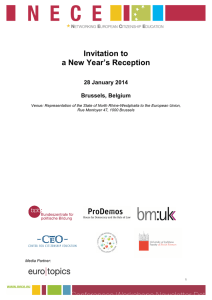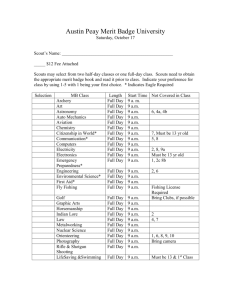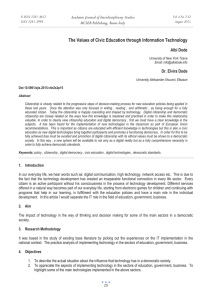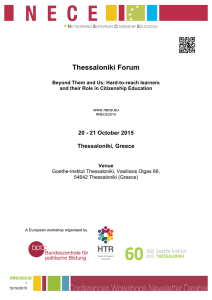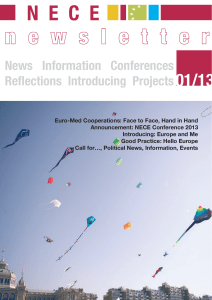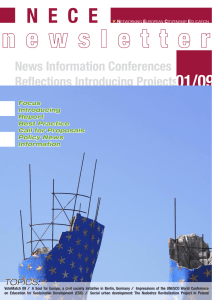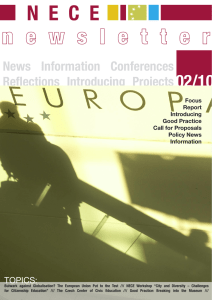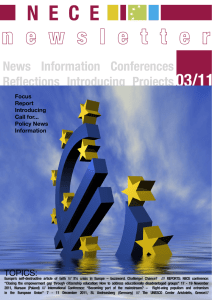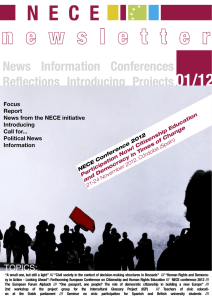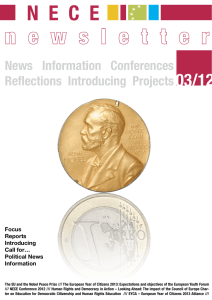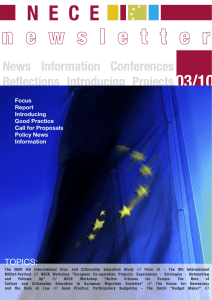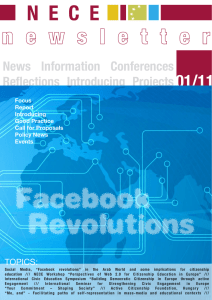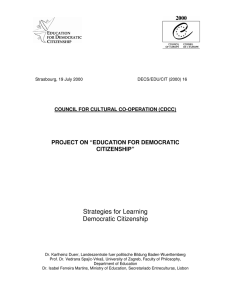Document 10636983
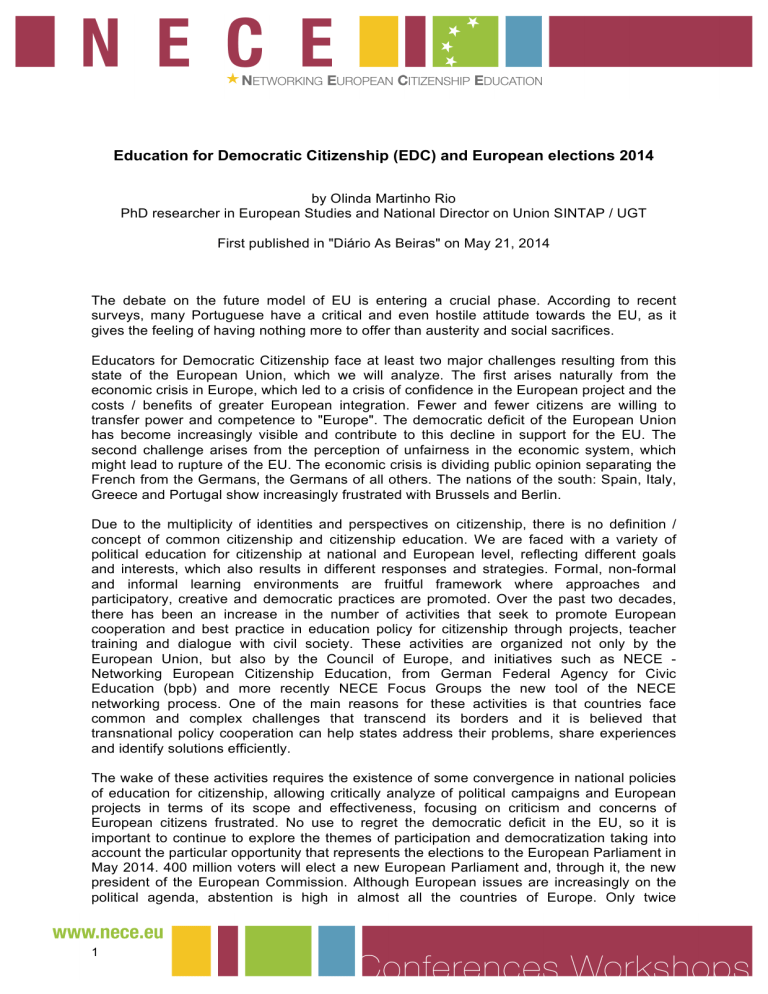
Education for Democratic Citizenship (EDC) and European elections 2014
by Olinda Martinho Rio
PhD researcher in European Studies and National Director on Union SINTAP / UGT
First published in "Diário As Beiras" on May 21, 2014
The debate on the future model of EU is entering a crucial phase. According to recent surveys, many Portuguese have a critical and even hostile attitude towards the EU, as it gives the feeling of having nothing more to offer than austerity and social sacrifices.
Educators for Democratic Citizenship face at least two major challenges resulting from this state of the European Union, which we will analyze. The first arises naturally from the economic crisis in Europe, which led to a crisis of confidence in the European project and the costs / benefits of greater European integration. Fewer and fewer citizens are willing to transfer power and competence to "Europe". The democratic deficit of the European Union has become increasingly visible and contribute to this decline in support for the EU. The second challenge arises from the perception of unfairness in the economic system, which might lead to rupture of the EU. The economic crisis is dividing public opinion separating the
French from the Germans, the Germans of all others. The nations of the south: Spain, Italy,
Greece and Portugal show increasingly frustrated with Brussels and Berlin.
Due to the multiplicity of identities and perspectives on citizenship, there is no definition / concept of common citizenship and citizenship education. We are faced with a variety of political education for citizenship at national and European level, reflecting different goals and interests, which also results in different responses and strategies. Formal, non-formal and informal learning environments are fruitful framework where approaches and participatory, creative and democratic practices are promoted. Over the past two decades, there has been an increase in the number of activities that seek to promote European cooperation and best practice in education policy for citizenship through projects, teacher training and dialogue with civil society. These activities are organized not only by the
European Union, but also by the Council of Europe, and initiatives such as NECE -
Networking European Citizenship Education, from German Federal Agency for Civic
Education (bpb) and more recently NECE Focus Groups the new tool of the NECE networking process. One of the main reasons for these activities is that countries face common and complex challenges that transcend its borders and it is believed that transnational policy cooperation can help states address their problems, share experiences and identify solutions efficiently.
The wake of these activities requires the existence of some convergence in national policies of education for citizenship, allowing critically analyze of political campaigns and European projects in terms of its scope and effectiveness, focusing on criticism and concerns of
European citizens frustrated. No use to regret the democratic deficit in the EU, so it is important to continue to explore the themes of participation and democratization taking into account the particular opportunity that represents the elections to the European Parliament in
May 2014. 400 million voters will elect a new European Parliament and, through it, the new president of the European Commission. Although European issues are increasingly on the political agenda, abstention is high in almost all the countries of Europe. Only twice
1
abstention in Europe was below 50%. In Portugal abstention has been for the past 20 years, more than 60%. In 1994 reached 64%. In the following elections, in 1999, went down, but
60% of the Portuguese opted to stay home. In 2004, abstention rose again to 61%. In the last election, the number of Portuguese who chose not to vote rose again and reached 63%.
All indications are that the trend will remain in the May elections, but the European debate remains at zero. In a lack of respect for the content of democracy, parties in Portugal tend to devalue this debate and vote turns out to be just a way to show “red cards” to who rules the govern, instead of expressing a choice for democratic representation in Brussels institutions.
2





